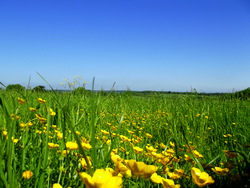 Authors of a German study looking at acupuncture for hayfever have concluded that patients can significantly reduce their use of antihistamines whilst also improving their symptoms. At the start of the pollen season, 414 patients aged 16 to 45 were randomised into three groups: acupuncture plus cetirizine, sham acupuncture plus cetirizine, and cetirizine alone. The acupuncture group received 12 sessions over the eight week intervention period. All participants documented their medication use before and during the trial.
Authors of a German study looking at acupuncture for hayfever have concluded that patients can significantly reduce their use of antihistamines whilst also improving their symptoms. At the start of the pollen season, 414 patients aged 16 to 45 were randomised into three groups: acupuncture plus cetirizine, sham acupuncture plus cetirizine, and cetirizine alone. The acupuncture group received 12 sessions over the eight week intervention period. All participants documented their medication use before and during the trial.
The results showed that eight weeks of true acupuncture was associated with significantly fewer days of antihistamine use, compared with the sham acupuncture and cetirizine alone groups. Also in contrast to the other two groups, the acupuncture patients did not need to increase the number of days on which they used antihistamines, as the pollen season moved from onset to peak. Approximately 38% of the acupuncture group used no antihistamines at all, compared to 16% in the group in which antihistamines only were permitted.
The authors state that acupuncture is relatively safe, and common side effects are bleeding and haematoma caused by the needles. In contrast, antihistamines like cetirizine commonly cause fatigue, dizziness, headaches, sleepiness and sore throat. They reduce patients’ quality of life, and affect daily life and activities. Clinical guidelines strongly recommend antihistamines however, and acupuncture is listed as a supplementary option. These results encourage consideration of the need for a stronger position of acupuncture in those guidelines, as a valuable, additional treatment option.
(Impact of acupuncture on antihistamine use in patients suffering seasonal allergic rhinitis: secondary analysis of results from a randomised controlled trial. Acupuncture in Medicine, 10 February 2018.)
